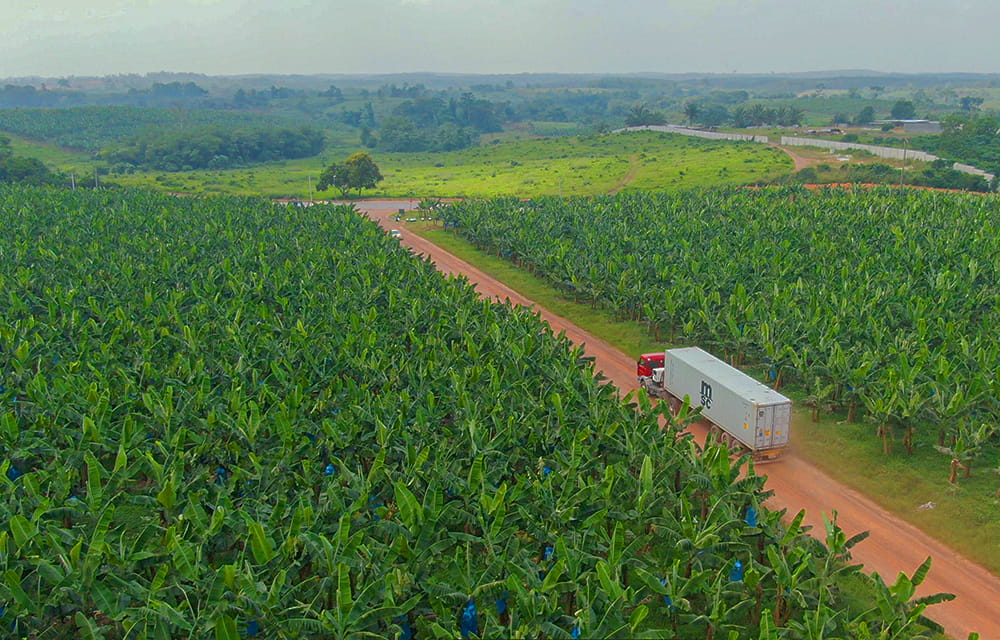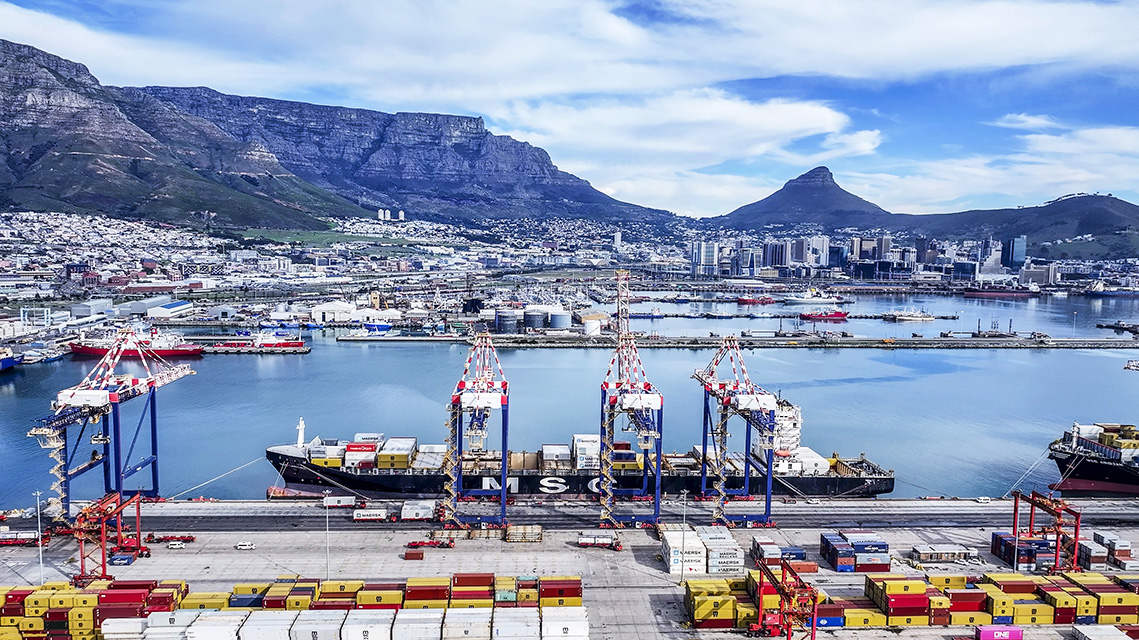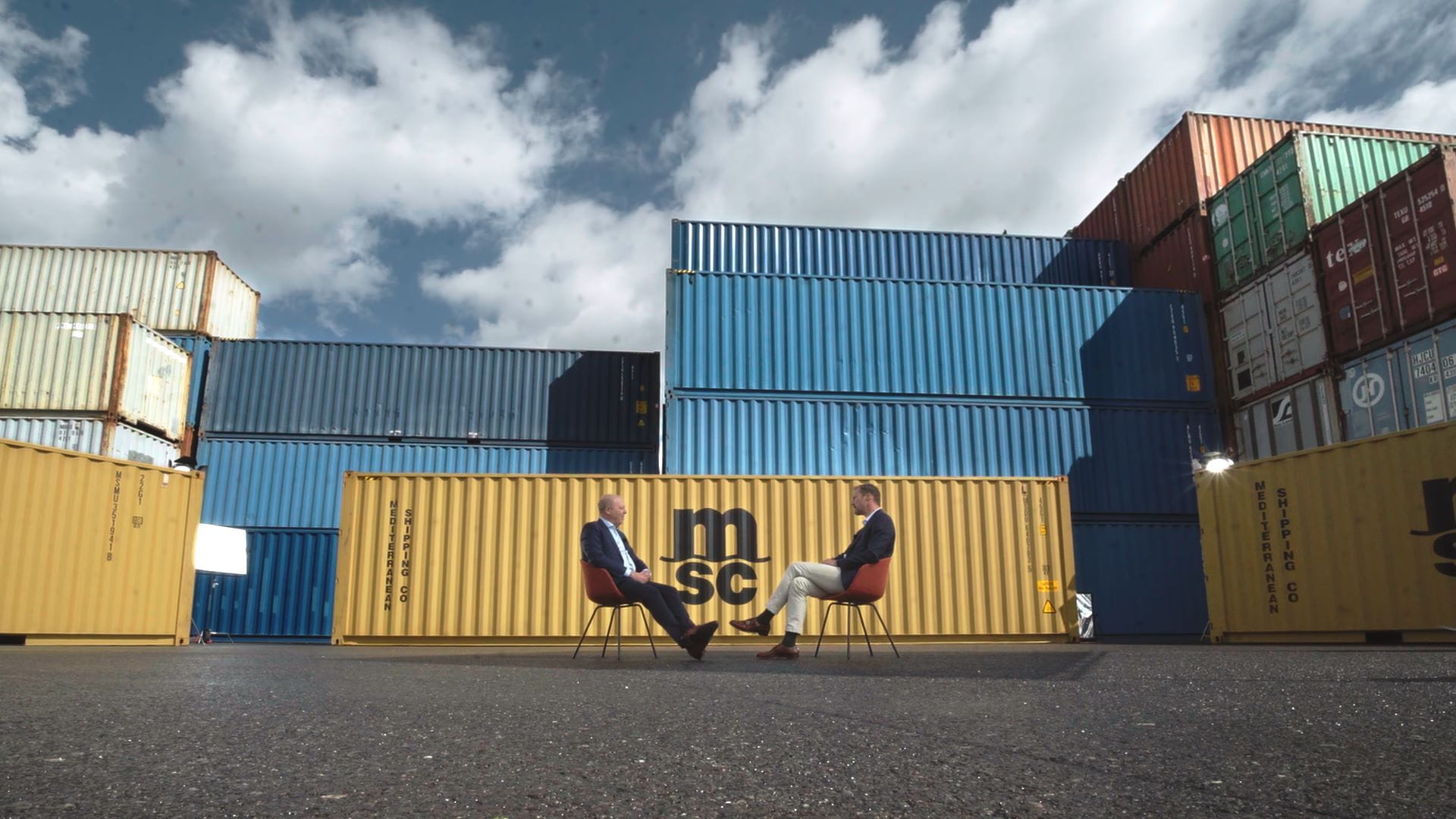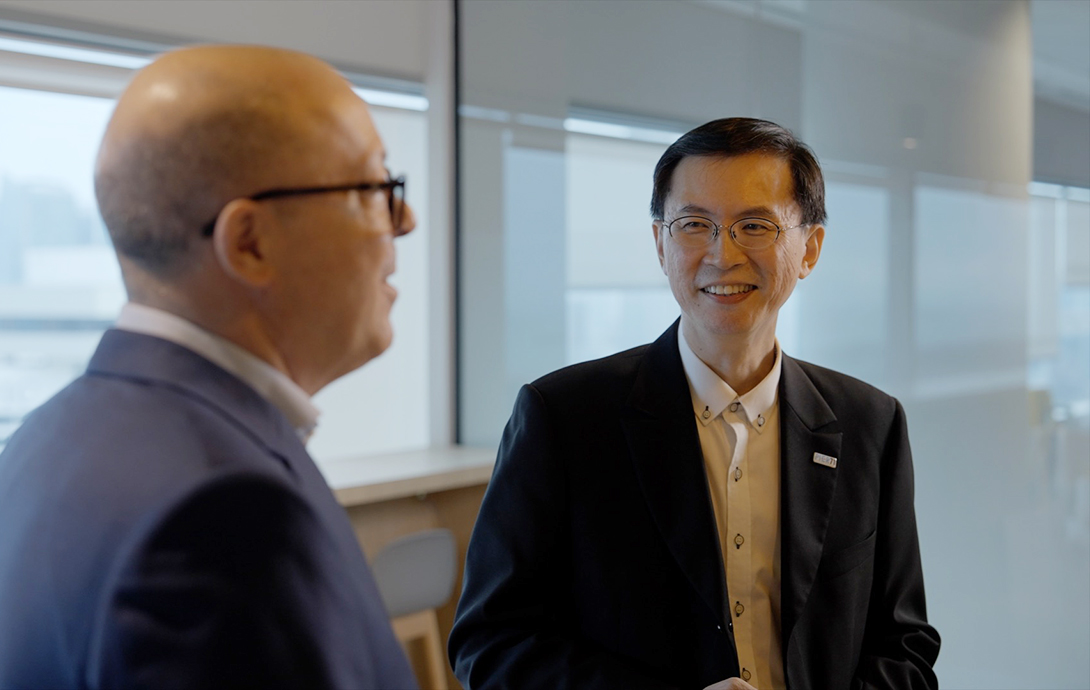
/it/newsroom/stories/digital/2023/msc-digital-talks-ep,-d-,3-innovation-insights-from-singapore-leading-port-group-psa
MSC Digital Talks ep.3: Innovation Insights from Singapore Leading Port Group PSA
06/09/2022
For our #MSCDigitalTalks series, MSC’s CDIO André Simha meets industry experts and leaders to discuss the hottest topics in shipping. In the latest episode, he speaks to PSA International’s Ho Ghim Siew about innovation, data-sharing and the ecosystems of the future.
Exploring new frontiers in digital innovation
Digital innovation and better data-sharing in supply chains could be the answer to many of today’s supply chain pain points.
Andre Simha explores this subject in the latest episode of #MSCDigitalTalks featuring Ho Ghim Siew, Head Group Strategy and Cargo Solutions at PSA International: a leading port group and trusted partner to cargo stakeholders with flagship operations in Singapore and Antwerp.
They speak about innovation, data-sharing and diversity – and the central role these elements play in the group’s operations and evolution.
Video highlights
- 1:07: How digitalisation and data can help to overcome supply chain pain points
- 2:36: Why we need standards and multiple digital data-sharing platforms
- 5:08: ‘Quick wins’ we can work on today
- 5:22: The electronic Bill of Lading (eBL) in focus
- 6:40: The importance of diversity and encouraging young people to join the industry
“ Over the last two years, we've seen a lot of supply chain disruptions and one-off incidents like the Suez Canal and other “Black Swan” events… But I believe that these pain points could be overcome with digitalisation and data, and we find that sharing data is probably the foundational piece. “
PSA International
About MSC Digital Talks
In each episode, MSC’s CDIO André Simha speaks to a different leader or expert about the future of digitalisation, innovation and technology. The series is part of our efforts to highlight the benefits of digitalisation in container shipping and to promote collaboration and industry standards across the supply chain.
Follow #MSCDigitalTalks on LinkedIn to watch the latest episodes and join the conversation.
Read Episode 3 Transcript
INTRODUCTION
Andre Simha: Hey, Ghim Siew, Wonderful to see you again in Singapore after so many years and particularly with this incredible view we have here over the terminal. I just visited your Innovation Center and I think it's wonderful how PSA is taking these matters in hand and developing solutions to help the ecosystem, help the supply chain.
Ho Ghim Siew: Welcome to Singapore, Andre. It's a pleasure to meet you finally in person. Did you have a go at the quay crane simulator?
Andre Simha: Yes, I moved about 100 containers in 2 minutes!
Ho Ghim Siew: Well, done. Top of the charts! So indeed, innovation is very core to PSA. We work very closely with partners in innovation. Not only are we innovating in the port, but we are also innovating in the other areas of the supply chains and technology.
Andre Simha: Absolutely, I think innovation is now part of our everyday life. What's your take on how digital transformation can help solve some of the biggest pain points that we have today in the supply chain?
Ho Ghim Siew: Over the last two years, we've seen a lot of supply chains disruptions due to COVID-related port lockdowns and one-off incidents like the Suez Canal and other “Black Swan” events. Or even the geopolitical risks that we are seeing and encountering. What we have seen is that schedule reliability is still one of the biggest pain points and that itself has brought a lot of knock-on effects into ports. And we do see bottlenecks here and there. But I believe that these pain points could be overcome with digitalisation and data, and we find that sharing data is probably the foundational piece, before we go over to more predictive or prescriptive analytics with the data.
Andre Simha: I think your analysis is absolutely correct. So, it shows the importance of the famous three “Ts”: visibility, predictability and of course, sustainability. We understand how difficult it is for the for the ports. And the same goes for us as carriers. If the ports are congested, our vessels cannot berth. If our vessels cannot berth, cargo is not discharged. In the end, it's the customer and consumer who are unhappy.
Ho Ghim Siew: Exactly, because the supply chain involves so many players. If we want to deliver a desired outcome, it would have to involve everyone in the supply chain, which is why we are also looking at various new collaboration models. JIT* is one classic example. With Just-in-time we could have better exchange of information and the lines would not need to rush just to wait, or wait just to rush.
Andre Simha: Absolutely.
Ho Ghim Siew: We work very closely with DCSA* under your leadership, with MSC, as well as MPA*, on how we could share data to ensure that we all have that kind of seamless handshakes and the visibility that we need.
Andre Simha: I think that's the future. I'm so happy we can run these pilot projects together to figure out what works and what doesn't work. As you mentioned, together, we get to a situation where if you look outside, there're actually very few ships waiting to berth. So, the establishment of the standards as a foundation to these projects is extremely important. Of course, DCSA has its role to play, and I'm glad that you managed to have this dialogue.
Ho Ghim Siew: Absolutely. Adopting the standards is one piece, but there should still be an environment or a platform that encourages and fosters data sharing. So, in that respect, at PSA, we are also founding members of two digital data platforms: GSBN* and SGTraDex*. What are your views of that?
BUILDING THE ECOSYSTEMS OF THE FUTURE (04:12)
Andre Simha: We need these platforms. We don't need one platform; we need several platforms because you also have to deal with the local requirements. But what’s critical again is the foundation of the data that we're talking about, the governance as to who has access to what. The mapping that is extremely important. And then the interoperability flows through once we've got that foundation. And yes, I'm very excited about these ecosystems. I think they make a lot of sense and will certainly help us to further improve the efficiency of the supply chain overall.
Ho Ghim Siew: MSC and PSA have been very close partners, not just here in Singapore where we sit, but in many parts of the world. And both of us are also equally involved in growing this ecosystem of players and initiatives and applications. What do you think are some of the quick wins that we could explore?
Andre Simha: We need to do these pilots. We need to do proof of concept. We have to look at all the little things that we can put together, as you say, to get quick wins. I think we also have to work on the quality of the information.
Ho Ghim Siew: That’s right! I think one application that we could certainly look at is the eBL*. The team in PSA on CALISTA*, together with MPA, IMDA* and various carriers like yourself, would be happy to explore that solution and scale it over time.
Andre Simha: Absolutely. You touched a subject that's very close to my heart, something we've been discussing for a very long time and trying to bring all the partners together: the eBL. And I think the ports have a huge role to play, as have MPA in the case of Singapore, the banks and ultimately, again, the customers. But I think, also for innovation, we need to see what's out there. We need to learn from people coming from other industries. So, what's your take on the future or the current workforce? How do you see that at PSA?
INNOVATING BEYOND TRADITIONAL BOUNDARIES (06:22)
Ho Ghim Siew: Innovation is very important to us, and we believe that we need to have that culture that permeates throughout the organizations. So, on a day-to-day basis we have innovation catalysts on the ground, right, who champion new ideas. Another way is really what you said. The world is changing so quickly. We need to be able to anticipate these changes and there is a war for talent out there. So, we believe that there should be some kind of outside-in views as well. And as a team, we value that diversity and what the other experiences outside the ports would bring and we bring them in, welcome them to the fold, and they will also be our innovation catalysts for new products, for new solutions.
Andre Simha: I cannot agree more. I think we look at it in the same way. I think bringing people from different horizons, also from the younger generation, is extremely important. And that's how we innovate. That's how we get new ideas. That also helps collaboration and dialogue with our partners, such as you. So, I think we're on the right track. Thank you Ghim Siew for taking the time to talk to me. It's been a very interesting discussion, and I hope we'll have the opportunity to meet again in Singapore or Geneva to continue our discussions together.
Ho Ghim Siew: My pleasure, Andre.
*JIT: Just-in-Time
*DCSA: Digital Container Shipping Association
*MPA: Maritime & Port Authority of Singapore
*GSBN: Global Shipping Business Network
*SGTraDex: Singapore Trade Data Exchange
*eBL: Electronic Bill of Lading
*CALISTA: PSA's digital end-to-end supply chain platform
*IMDA: Infocomm Media Development Authority




